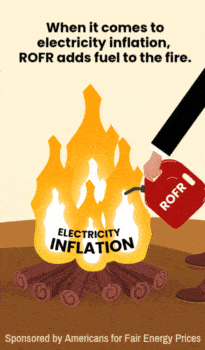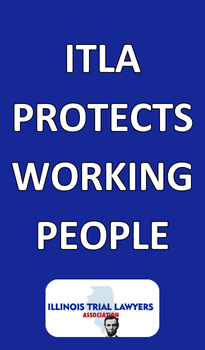* Tribune…
Mayor Lori Lightfoot is working to form a city-owned marijuana cultivation co-op that aspiring entrepreneurs could buy into to address some of the inequities in the legal marijuana business, she said Monday.
“I would like to have the opportunity for the city to create a cooperative cultivation center so that we can bring a professional in … then people will buy into the cooperative even with a modest cash investment or sweat equity and eventually, after they learn the business from top to bottom, turn that over to them,” Lightfoot said.
* Sun-Times…
Lightfoot said up to $15 million generated by tax-increment financing could be used as seed money for the plan to open a “cooperative cultivation center” that residents of color could “buy into” — either with a “modest cash investment” or with “sweat equity.”
She said the idea is aimed at overcoming the biggest impediment to minority ownership: access to capital.
“This is a very, very expensive business to get involved with. The basics to be a cultivator requires about a $13 million to $15 million investment. There are not a lot of people that have that, particularly in a market that a lot of banks and traditional lenders won’t touch,” she said.
“I think the only way to really crack this nut is for the city to invest its own resources to get engaged, get diverse entrepreneurs involved in the most lucrative part of the business, which is cultivation,” Lightfoot added.
It may be lucrative, but growing anything involves significant risk.
* Crain’s…
As interesting as it sounds, it’s not clear how, or if, it could work. Marijuana businesses are licensed by the state, although local governments have control whether to allow them to set up shop via the zoning process. As Chicago has found, it’s often not clear where one stops and the other begins.
The state isn’t planning to issue new cultivation licenses, beyond the 22 facilities licensed under the medical-marijuana law, for another two years. […]
The state soon will take applications for 40 “craft-grower” licenses that will be awarded in July. Under the law, such growing facilities could be 5,000 to 14,000 square feet. Cultivation centers can be up to 210,000 square feet. Up to 60 more “craft-grow” licenses will be issued by Dec. 21, 2021.
In an effort to increase diversity, the state will award a 20 percent bonus to applications from people who qualify for “social-equity” status because they’ve lived in areas hit hard by poverty and the war on drugs or have criminal records related to minor marijuana possession offenses.
* Pritzker administration…
The administration is excited that people are discussing new and innovative approaches to equity and we look forward to exploring those options when the application period for cultivation centers begins in 2021.
* Context from CBS 2…
Facing a potential City Council showdown over an alderman’s bid to push back the start of recreational marijuana sales in Chicago from January to July, Mayor Lori Lightfoot on Monday said she’s confident she’ll be able to work out a compromise to avoid a delay.
Ald. Jason Ervin (28th), who chairs the City Council Black Caucus, has moved to force a City Council vote this week on his proposal to delay legal weed sales in the city for six months.
Ervin’s ordinance has been bottled up in the Committee on Contracting Oversight and Equity since he introduced it in October, receiving only a subject matter hearing – but no vote – since then. So he has invoked a City Council rule allowing him to force a vote on proposed legislation after it’s sat idle for at least 60 days. […]
Lightfoot sounded cautiously optimistic that, one way or another, she will avoid a delay in recreational marijuana sales in Chicago.
“I met with Alderman Ervin last week, and my staff continues to talk to he and other members of the Black Caucus,” she said. “I think we’re going to get there. I understand their concern. They want to make sure that this new law speaks to the inequities that have befallen black and brown communities, particularly over the war on drugs.”
* ABC 7…
Monday members of the Black Caucus met at 6th Ward Alderman Rod’s Sawyer’s South Side office to discuss options.
“What we gain is the fact that no sales, no commerce. Again we have very specific points that we have brought about that we would like to see changed, the state didn’t give us a lot of flexibility in this matter,” said Ald. Ervin.
But one of the chief architects of the law, State Representative Kelly Cassidy, said delaying sales would be counterproductive, because income and fees from medical dispensaries, which will be the first to sell adult-use cannabis, provides money for loans and grants for minorities applying for licenses.
*** UPDATE *** Press release…
As social equity applicants continue to apply for the coming round of cannabis dispensary licenses, the Pritzker Administration today opened applications for the first $21 million Low Cost Loan Program that was authorized in the cannabis law signed in June. The initiative is funded through the Cannabis Business Development Fund, created by the Cannabis Regulation and Tax Act, to support social equity applicants seeking cannabis business licenses.
The fund is primarily supported through the licensing fees of the first round of dispensaries and cultivators, among other sources. As additional early use licenses for dispensaries and cultivators are awarded, the available funds for loans are expected to surpass $30 million. […]
The low-interest loans will be available to those applying for a license to operate a cannabis business that meet the following criteria as set forth in the Cannabis Regulation and Tax Act:
• Has at least 51% ownership and control by one or more Illinois residents who:
o Have lived in a Disproportionately Impacted Area in 5 of the past 10 years. Disproportionately Impacted Areas are census tracts that have high rates of arrest and incarceration related to cannabis offenses, among other qualifications including high poverty and unemployment. A map of these areas is available here.
o Have been arrested for, convicted of, or adjudicated delinquent for cannabis-related offenses eligible for expungement, including cannabis possession up to 500 grams or intent to deliver up to 30 grams.
o Have a parent, child, or spouse that has been arrested for, convicted of, or adjudicated delinquent for cannabis-related offenses eligible for expungement, including possession up to 500 grams or intent to deliver up to 30 grams.
• Has more than 10 full-time employees, and more than half of those employees:
o Currently reside in a Disproportionately Impacted Area.
o Have been arrested for, convicted of, or adjudicated delinquent for cannabis-related offenses eligible for expungement, including cannabis possession up to 500 grams or intent to deliver up to 30 grams.
o Have a parent, child, or spouse that has been arrested for, convicted of, or adjudicated delinquent for cannabis-related offenses eligible for expungement, including possession up to 500 grams or intent to deliver up to 30 grams.
In addition to the above, other criteria will be considered for qualification for a loan, including business plans, financial details, operational and compliance information, and need. While the interest rates for all loans will be below market rate, the specific rate, size and duration of each loan will be determined on a case-by-case basis. Successful applicants will receive pre-approval for a Cannabis Social Equity Loan, conditional on receipt of a license.















